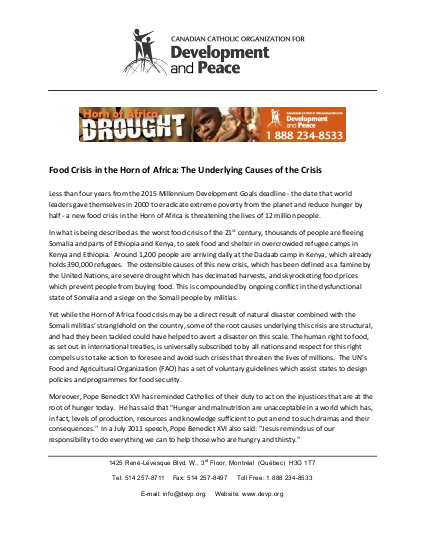
Less than four years from the 2015 Millennium Development Goals deadline - the date that world leaders gave themselves in 2000 to eradicate extreme poverty from the planet and reduce hunger by half - a new food crisis in the Horn of Africa is threatening the lives of 12 million people.
In what is being described as the worst food crisis of the 21st century, thousands of people are fleeing Somalia and parts of Ethiopia and Kenya, to seek food and shelter in overcrowded refugee camps in Kenya and Ethiopia. Around 1,200 people are arriving daily at the Dadaab camp in Kenya, which already holds 390,000 refugees. The ostensible causes of this new crisis, which has been defined as a famine by the United Nations, are severe drought which has decimated harvests, and skyrocketing food prices which prevent people from buying food. This is compounded by ongoing conflict in the dysfunctional state of Somalia and a siege on the Somali people by militias.
Yet while the Horn of Africa food crisis may be a direct result of natural disaster combined with the Somali militias’ stranglehold on the country, some of the root causes underlying this crisis are structural, and had they been tackled could have helped to avert a disaster on this scale. The human right to food, as set out in international treaties, is universally subscribed to by all nations and respect for this right compels us to take action to foresee and avoid such crises that threaten the lives of millions. The UN’s Food and Agricultural Organization (FAO) has a set of voluntary guidelines which assist states to design policies and programmes for food security.